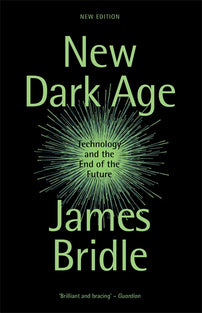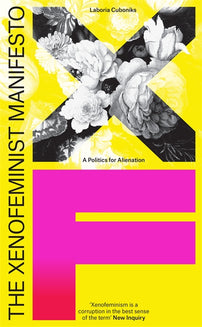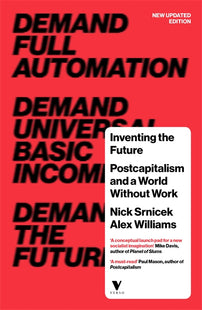Hegemony 2.0
Recent events have conclusively proved that social media is not the neutral global community that it is often taken to be – not least the recent purge of Facebook profiles of those voices critical of US foreign policy. In this article, Lewis Bassett argues that we are beginning to witness the growth of a tech monopoly capitalism that backs up US imperialism, and asks how, in the face of this, can we build a new left media.

Far right content on social media regularly outperforms that from the left. During the trials and tribulations of Tommy Robinson, the British far right activist who was briefly jailed for contempt of court this year after interfering in the trial of several sex offenders, the founder of the English Defence League posted content on Facebook that vastly outperformed even Jeremy Corbyn. The figures on YouTube are even more troubling. There the most watched video on the official channel for the Labour Party Leader is trounced by the equivalent from Robinson, which has over 1.6 million more views.
Yet, arguments levelled against traditional broadcasters for providing a platform for the racists views of Robinson don’t go far enough. Indeed, denial of a voice in the “mainstream media” helps bolster the far right’s self-narration online as champions of free speech and non-politically correct, yet common sense, opinions. But with viewing figures in the millions, social media is mainstream. As such it should be confronted in the same way.
Fortunately, perhaps, privacy scandals and claims of “electoral interference” have forced giant media monopolies like Facebook to challenge their laissez faire approach to regulation. As recently as July, Zuckerberg refused to take down content from Facebook which denied the Holocaust, prompting YouTube, Twitter and Spotify to out-do Zuck by banning the internet conspiracy theorist Alex Jones. Still the world’s most popular social media company by far, Facebook likes to think of itself in terms of an internet ideal, that is as a horizontal and peer-to-peer network, rather than a traditional hierarchical publisher. When asked in April whether Facebook was a media company, Zuck responded saying “I consider us to be a technology company.” Much like the word platform, the word technology invokes the internet’s image of passive neutrality, an ideal backed up by US law.
Economic and political pressure is forcing Zuck’s recent change of heart. On October 11th, Facebook announced it had removed over 800 pages and accounts it deemed inauthentic. “People need to be able to trust the connections they make on Facebook” a newsroom update announced. Yet the problem for the company is that trust is severely lacking. And why wouldn’t it be? As Wired points out, Zuck has been on a decade long apology tour and yet the scandals and mistakes keep mounting.
Facebook has turned down requests for a full list of what accounts and pages it purged. An investigation by the Western Journal uncovered 165 of them with a combined following of 60 million users (the research methods used are flawed, yet the findings are still interesting). If the media monopoly would like to build trust then why not start here? Perhaps Facebook can clarify if the purge included, for example, voices critical of American foreign policy and what was the exact criteria for this ban if so? Furthermore, if the poisonous Alex Jones can be wiped out over on YouTube then why can’t Zuck do the same for him on Facebook, along with Tommy Robinson?
For a man who likes to refer to his invention as a global community, Zuck exhibits a contradictory record for centralisation. Worse still, he shows an alarming willingness to execute the interests of powerful Western states. In 2017, the Intercept reported that Facebook was working with the Israeli government to moderate content on Palestine. Likewise, in return for access to Turkey Facebook regularly polices pro-Kurdish content. In August this year, Facebook announced it had “removed Pages, groups and accounts that can be linked to sources the US government has previously identified as Russian military intelligence services.” And in May it confirmed a partnership with the hawkish Atlantic Council, a pro-NATO think tank whose establishment leading lights include American ex-military officers. Indeed, when Russian or Iranian agents seek to manufacture opinion in the West on Facebook it’s considered “interference”, but there’s not a word when Israel does the same. It appears, then, that liberal hysteria over fake news – composed of one part technophobia and another of the reaction to the shifting centre in Western politics – has handed regulation of the world’s biggest public sphere to the hegemonic interests of Western states. Facebook’s much needed rewiring has arrived via Silicon Valley’s back door.
What we’re beginning to witness is the growth of tech monopoly capitalism. Unlike its post-War predecessor, as Paul Mason makes clear, the life blood of this monopolistic order is not labour, but data. In our data driven future, those who shape the algorithms have the power to influence everything from our diet of news to our access to credit. In fact, states could use an algorithm to determine whether you committed a crime;, something which has already happened, and which turned out to be racist.
The problems with centralised and market-based use of big data are not only directly negative. They also obstruct the possibilities for a more enlightened use of tech. Rather than turning media populations into cranky online addicts or engineering biometric shopping trollies, big data can be better used to find a cure for cancer or advance AI. This reminds us that socialism is not only the critique of the present state of things but the ideal of a society that is altogether more profound, indeed a society that can realise the liberating potential of technology.
As for Facebook, its mask is slipping. Less able to refer to itself in the ideological terms of a neutral tech platform, recent decisions to remove content or tweak its algorithms (that is, in the language of traditional media, its editorial policy) has burst the bubble that has hidden the fact that Facebook is a publisher. More than this, the media monopoly is increasingly revealing the interweaving of its business interests with that of powerful Western states. Not only has public oversight provided the technology that makes a smart phone smart, but more than ever the content decisions effecting the world’s biggest public sphere are being shaped directly by the state. The task for us, therefore, is to democratise it.
-
Lewis Bassett is a PhD student at the University of Manchester. Follow him on Twitter @le_bassett
[book-strip index="1" style="display"]



